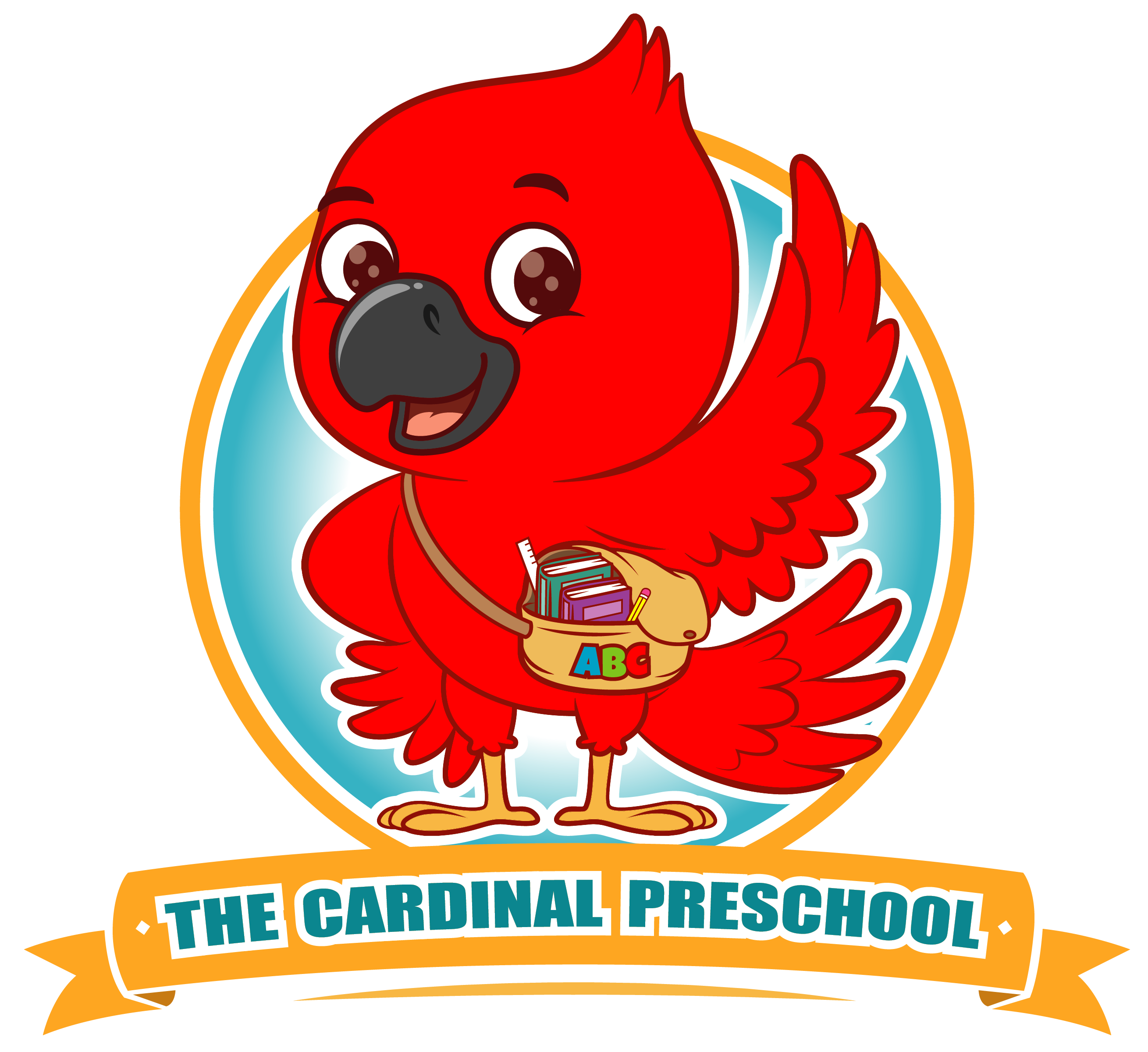Vocabulary Matters – Start Early To Stay Ahead

An early start to vocabulary development is important. Vocabulary development is the process of learning new words. The number of words a child knows between preschool and first grade is often a good indicator to show the level of understanding of the lesson taught to them in the future school years. That’s why it’s crucial to start laying the groundwork for a strong vocabulary during the preschool years.

Why Vocabulary Matters in Preschool?
The most important skill needed for a kid to start their reading and writing journey is vocabulary. The average number of words a child should be comfortable with to start their grade 1 education is around three thousand to five thousand words.
The Cardinal Preschool Early Literacy Program emphasizes helping kids build their vocabulary. Literacy abilities begin to develop over the first five years of a child’s life, beginning with a toddler’s inquisitiveness to clutch and nibble on a book and ending with wanting to read their favourite book over and over again.
I am sure most parents have been through or are going through this part. I recall that with my kid, I had to literally hide her favourite book, which was Monkey Puzzle by Julia Donaldson and Axel Scheffler, so that she would read other books as well.

Developing a child’s vocabulary is a challenging and time-consuming task.
Aspects we consider while teaching new words to the students at our preschool.
To begin with, we make a child familiar with the new word so they can pronounce it properly.
In addition, they will also become aware of both the meaning of the word and the manner in which it is usually used in different settings.
Furthermore, the alternative meanings of a word are taught to help a child expand their vocabulary.
To wrap it up, we will aid vocabulary acquisition by providing examples of the word’s use in sentences and providing numerous opportunities to practice the new word in both written and spoken contexts.

Impact of vocabulary on cognitive and social development.
Possessing a vast vocabulary has a positive impact on a child’s personality. A preschooler with a larger vocabulary is more likely to understand their own feelings, behaviours, and interpersonal conflicts. Teaching young children at The Cardinal Preschool to care for and comprehend the experiences of others is central to our educational program. Young children who are able to recognise and manage their own emotions, as well as those of others, have better social and academic results.

Connection between vocabulary and academic success.
Our preschool children are building many opportunities each day as they are learning new words. Children with great vocabulary skills tend to be successful in mathematics and are more likely to read for enjoyment. A student who has an above-average vocabulary at the beginning of their primary school education will continue to show a faster-than-average rate of vocabulary increase in the years to follow.
It may not be immediately apparent why a child’s language development is so crucial to their academic success. But the more words they know, the more they understand about the world. As a result, they are able to use what they have learned about words to expand their horizons of understanding. Children who have a wide range of words at their disposal will have an easier time grasping the more complex academic language used in classroom settings.

Vocabulary boots the confidence.
When a youngster comes to our preschool with an appreciable grasp on vocabulary, we notice that the child possesses a high level of confidence, which is a positive sign. Because expanding one’s vocabulary has such an obvious impact on child’s ability to listen, comprehend, and converse effectively. We often observe that the children who has a higher level of confidence are the ones who are more eager to gain knowledge. Confidence has been cited as one of the variable in determining success in academics.

Building Vocabulary at Home.
Young children are in an ongoing process of acquiring new vocabulary. The number of opportunities a child had to hear new words will largely determines the quantity and types of words that child learned.
Some parents may feel that because they speak English at home, their child doesn’t have to worry about learning new words. It does not work that way. The language we use in regular conversation is less refined than the language we encounter in books. The English used in reading books or magazines has a more extensive and sophisticated vocabulary than what we use in our everyday conversations. Speaking English with your child is beneficial, but the vocabulary your child will come across in books are more crucial to their language development.
Children who grow up in families where reading aloud and having meaningful talks with family members are prioritized tend to succeed academically. Similarly, a youngster whose parents value reading will likely develop a similar appreciation for reading. Children naturally gravitate toward doing what their parents do.
Some parents believe that their child’s success in reading and writing will depend on their child obtaining the “right” first grade teacher, when in fact, it will depend on the amount of preparation the child had prior to entering grade 1. It is the joint responsibility of both parents to provide their children with opportunities at home to participate in activities that contribute to the development of their vocabulary.

In conclusion,
I believe that “Vocabulary matters—building it as well as using it the correct way”. The greater one’s vocabulary, the more distinct and potent one’s thoughts become.



